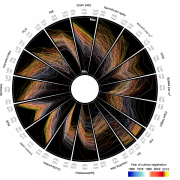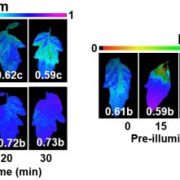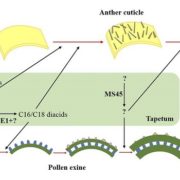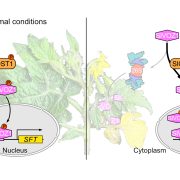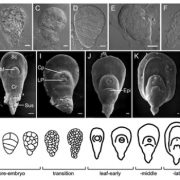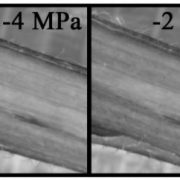Using emmer wheat to discover genes involved in drought tolerance
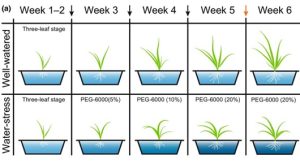 Wheat is a major global crop, but its yields are severely compromised by drought, thus developing varieties with a higher drought tolerance is important. Emmer wheat (Triticum turgidum) is a wheat ancestor that contains more genetic diversity than cultivated varieties, so it can be used in genome wide association studies (GWAS) to discover alleles associated with higher drought tolerance. Here Yang et al. grew 107 emmer wheat accessions to the three-leaf stage, and then transferred them to well-watered and water-stressed conditions for a further four weeks. For each accession, they measured biomass, root length, root area and root volume in both conditions and calculated drought tolerance indexes for each trait by dividing the value in the water-stressed condition by that in the well-watered condition. These drought tolerance indexes were used as input for a GWAS and an expression GWAS (eGWAS), which allows identification of loci associated with changes in gene expression between well-watered and water-stressed conditions. Integrating these strategies identified 86 quantitative trait loci (QTLs) and 190 expression QTLs. Interestingly, one contained the SUMO protease OTS1, and silencing or knocking this out in emmer wheat increased the drought tolerance indexes. Hence, OST1 has a potential to improve wheat drought tolerance. (Summary by Rose McNelly @Rose_McN) New Phytol. 10.1111/nph.19589
Wheat is a major global crop, but its yields are severely compromised by drought, thus developing varieties with a higher drought tolerance is important. Emmer wheat (Triticum turgidum) is a wheat ancestor that contains more genetic diversity than cultivated varieties, so it can be used in genome wide association studies (GWAS) to discover alleles associated with higher drought tolerance. Here Yang et al. grew 107 emmer wheat accessions to the three-leaf stage, and then transferred them to well-watered and water-stressed conditions for a further four weeks. For each accession, they measured biomass, root length, root area and root volume in both conditions and calculated drought tolerance indexes for each trait by dividing the value in the water-stressed condition by that in the well-watered condition. These drought tolerance indexes were used as input for a GWAS and an expression GWAS (eGWAS), which allows identification of loci associated with changes in gene expression between well-watered and water-stressed conditions. Integrating these strategies identified 86 quantitative trait loci (QTLs) and 190 expression QTLs. Interestingly, one contained the SUMO protease OTS1, and silencing or knocking this out in emmer wheat increased the drought tolerance indexes. Hence, OST1 has a potential to improve wheat drought tolerance. (Summary by Rose McNelly @Rose_McN) New Phytol. 10.1111/nph.19589


